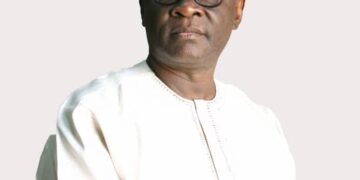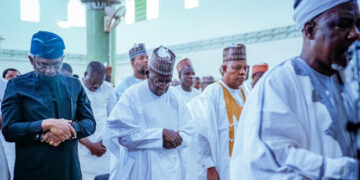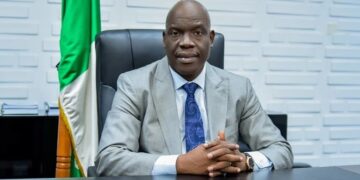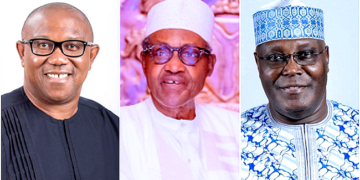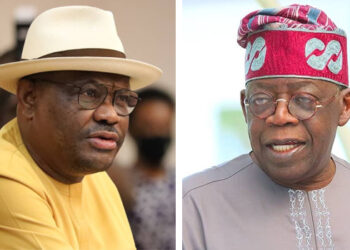In a powerful step to redirect Nigeria’s economic destiny, President Bola Tinubu has unveiled the Nigeria First Policy, a bold declaration that aims to prioritize local industry, indigenous labor, and self-reliance at the center of national development. This audacious move is a statement of intent that speaks to the heart of a nation yearning for self-sufficiency and economic resilience. However, a pressing question looms: who will enforce this commitment?
For decades, Nigeria has bled foreign exchange by importing items that can be produced locally, often awarding lucrative contracts to foreign firms for work that skilled Nigerian citizens could perform just as competently, if not better. This systemic issue has left the Nigerian economy vulnerable and has stymied local entrepreneurship. The dire need for change is palpable, and President Tinubu’s directive seeks to break this damaging cycle. Yet, concerns about enforcement have surfaced and rightly so. Without robust execution, the Nigeria First initiative runs the risk of joining the ranks of well-intentioned policies that faltered in silence, merely existing as an echo of government intention without tangible impact on the ground.
The execution of this policy will be paramount to its success. The Bureau of Public Procurement (BPP) must step up, playing an instrumental role by refusing to approve foreign contractors unless there is absolute certainty that no qualified Nigerian exists for the task. This will necessitate a rigorous framework for assessing the competency of local firms, but it is a crucial first step toward fostering domestic capability and innovation.
Equally essential will be the role of the Nigeria Customs Service, which must be equally vigilant in ensuring that banned imports do not sneak in via lax enforcement. A failure here would undermine the very premise of the Nigeria First Policy. Importantly, the Ministry of Industry, Trade and Investment must also establish stringent mandates requiring businesses to prioritize local content in their operations, fostering a culture of accountability that resonates throughout the economic landscape.
To lay the groundwork for effective enforcement, it is vital for the Presidency to establish a Task Force on Nigeria First Compliance. This inter-agency body should consist of representatives from relevant ministries, the BPP, and the Customs Service, thereby ensuring broad oversight and accountability. Charged with the critical task of monitoring compliance and reporting directly to the Federal Executive Council, this task force can act as a watchdog that ensures the integrity of the Nigeria First initiative is upheld.
Moreover, the National Assembly must play its part by conducting oversight hearings, holding relevant ministries and agencies accountable. This transparent process will not only bolster the policy’s credibility but will also instill public trust in the government’s intentions. Nigerians deserve to know that their leadership is committed to enforcing change and is held accountable for its promises.
While robust frameworks and task forces may set the stage, actions speak louder than words. Policies mean little without consequences for violators. Naming, blacklisting, fining, or denying permits to those who flout the Nigeria First directive will send a resounding message that this is not just another soundbite; it is a national economic war plan. It is an essential part of changing the narrative around Nigeria’s economic identity.
By fostering an environment where local capabilities are esteemed and relied upon, we create a new standard that speaks to the nation’s respect for itself. Nigeria First should not merely be a slogan; it should be ingrained in the fabric of our economic policies, aspirations, and actions. The world respects countries that respect themselves and their citizens. Let this policy transform from a political declaration into a movement that reclaims Nigeria’s place in the global economy.
As we stand at this crossroads, what should be our next step? It is clear: we must demand that those with the power to enforce this compelling vision do so with unwavering commitment. The time for change is now, and the future of Nigeria depends on the collective will of our leadership to transform this declaration into reality. That future should be one of prosperity, self-reliance, and national pride.
Nigeria First presents us with an opportunity to redefine our economic landscape. But it must be accompanied by equally bold measures in enforcement and accountability. If we are to rise as a nation, we must embrace this policy not as mere rhetoric, but as our shared journey toward a more prosperous Nigeria.


